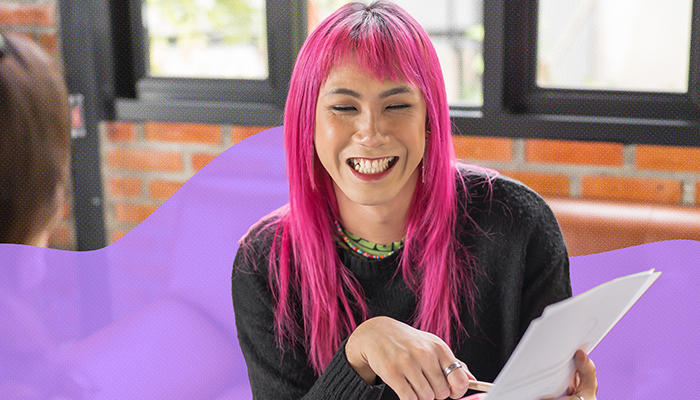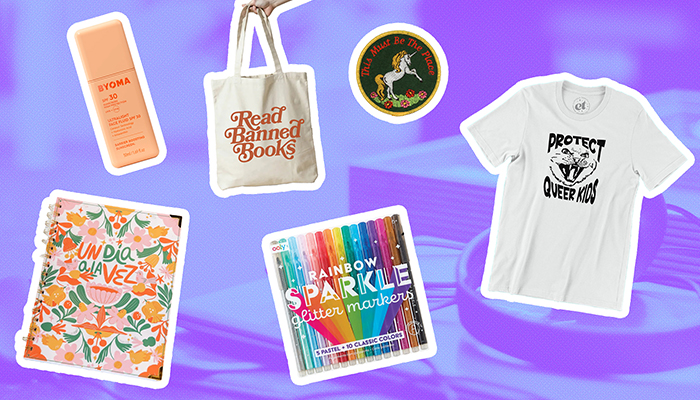By Coyote Park
In Theory
When I was in high school, I was always jumping from one relationship to the next. I was either in extremely short relationships or super long partnerships. My first long-term partnership was for a year before I turned 18, my next one was for two and a half years, but then I would grow close to new people by going on dates and talking for days on end. I would always be hard on myself for short-term relationships. I would ask myself, “Why am staying in long-term relationships if I feel emotions beyond platonic care for other people close to me?” I would criticize myself harshly and question my love for my long-term loves. I would self sabotage my own relationships by believing I wasn’t loving them in the same way they loved me. I believed that because I was drawn to other people, I wasn’t satisfied in my other relationships. It was only until later in my life that I realized that multiple loves can exist at the same time and do not invalidate each other. And that didn’t mean that I was lacking love or care from the other people I was with. I had a rocky time trying to learn the language of this and put it into practice. I had to acknowledge that my partners and I would make mistakes, learn, and grow. I had to leave room for hurt and also for joy. I had to leave room for my own humanity and my lovers. We won’t always know what each other needs or feels affirmed by, but that is why we have to ask. I knew I needed to build the communication that I didn’t have the tools for. I realized that I had damaged my earlier relationships because I didn’t know anything other than linear monogamy. While that can be incredibly beautiful and fulfilling for some, it was not true to the emotions that I carry. I had to take a hard look at colonization’s effects (the church, a settler state, heteronormativity, survival, nuclear family model, and misogyny) and the influence those effects had on my understanding of what a relationship meant or was supposed to look like.

I had to look at my roots: this wasn’t something in my nature. This was imposed on my people. Indigenous people from all over the world have always had different relationship archetypes, models, and standards that were less restrictive than western ideas of partnerships. Multiple love dynamics could coexist and operate on their own within indigenous communities. Domestic partners, intimate lovers, and emotional and romantic connections are all just different styles of partnerships that are common in my peoples’ history and lives. There were women warriors in some tribes that had multiple girlfriends or casual lovers, alongside their wives. That was major for me to learn later in life because it disrupted the standard of monogamous cis-heterosexual partnerships that I had held myself to. It helped me to normalize and not demonize the experience of holding care beyond platonic friendships with all of the people that inspire, captivate, and motivate me. That’s when I truly felt like these relationships have always been sacred and a part of the way my people have always experienced love.
In Practice

Practicing non-monogamy has made me so comfortable and secure in my individuality and agency. I don’t feel judged by my lovers for wanting to take someone on a date or kissing a cutie in passing. I feel like I can explore my passions, interests, and dreams with others without fear of where those connections are going. I have learned so much about expectations in relationships, about understanding others’ wants or needs in the future, and what people long for in the current dynamics. I am still unpacking and working through my own insecurities, possessiveness, and jealousy around new experiences that my partner(s) might have. And I will be working through a lifetime of those tough feelings, in the same way I will have lifetimes of healing. But this has been one of the most important journeys that I’ve been on. I have learned to emotionally regulate (which has drastically improved my mental health) and I have learned how to articulate my needs and hold room for my partner(s) needs. Just a year ago, my communication skills were so different. I used to be so afraid of talking to people that I would just close up. This came from a lot of trauma from my upbringing. The only examples that I had in childhood of a partner having other partners was of my parents’ deceptive and secretive acts, which only resulted in deception, hurt, and resentment. Early on in my relationships, I was emotionally and physically cheated on. I also cheated on my partners. I had to stop and look at what I didn’t want love or intimacy to look like, what I was fraid of, so that I could create new maps with others. My wife is the person that has helped me roll out the paper, grab a marker, and draw out what our foundation of love was and could look, feel, and be like.
My sweetie, who I had started seeing months prior to meeting my wife, is someone that allowed me to learn to love without expectations or possessiveness. They have their own primary partner and I have so much respect and pride for the relationships they hold. Being able to hold those feelings was such a new, fresh, and radical new experience. I was like: “Holy shit, look at how happy other people make them feel. I feel so grateful to get to show them love too and be invited into their life.” I meet up with them a few times a year, as we live in different places. I enjoy the way that our relationship always feels like an adventure! We enjoy new experiences with each other and so many fun moments out in the sun. Maybe that is what loving someone is: experiencing the euphoria for what the earth has to offer and allowing yourself to accept and love the person for where they are, who they are, not for what they are to you. I don’t hold a claim on them or love them based on conditions. In love, I’ve been breaking cycles and learning lessons—ones that my elders dreamed that I could break.

My marriage to my wife has taught me what teamwork means, what family is, and how to trust and truly thrive with someone. I call her my nesting partner because we are constantly building together both as a couple and as individuals. We bring all the pieces together to make a bed with one another and rest together. Our actions and words have an impact on how we navigate our partnership and our other relationships. So much of what makes our relationship good is making each other feel good. The happiest we have been has been when we have reconnected with one another, reminded each other of how we value the other, and actively choose each other. We don’t want our primary partnership to feel like an obligation or an expectation. The way we have put this in practice is to understand each other’s different love languages. My love language is words of affirmation and gift giving. Recently, my wife got me Disneyland tickets and sent me a voice note affirmation and it made my heart so full. I am understanding what life and love looks like in abundance. I want to be a gift that keeps on giving in the lives of all the people I love. I want that for others. I want my wife and my partners to feel confident, sexy, have fun, and to feel full. I want us all to have ownership over ourselves, especially all as trans and queer people, because sometimes this world makes us feel like we aren’t allowed to own our bodies, to love the people we love, or to exist freely. Being Two-Spirit, my agency is already limited and targeted in a colonial white-settler state. I don’t want to feel that in the sanctuary I build with my loved ones.
__
FOLX Health is the first digital healthcare company designed by and for the LGBTQIA+ community. Our services include virtual primary care, gender-affirming hormone therapy including estrogen and testosterone (HRT), mental health care, sexual and reproductive health care, preventive care, and fertility consultations. FOLX memberships give you access to LGBTQIA+ expert clinicians, peer support, thousands of LGBTQIA+ resources, and more. Whether you’re lesbian, gay, bisexual, transgender, queer, gender non-conforming, or nonbinary, you can find LGBTQIA+-specialized health care that helps you meet your wellness goals. FOLX Health is health care that's queer all year. Get all the benefits of becoming a FOLX member and sign up today!



